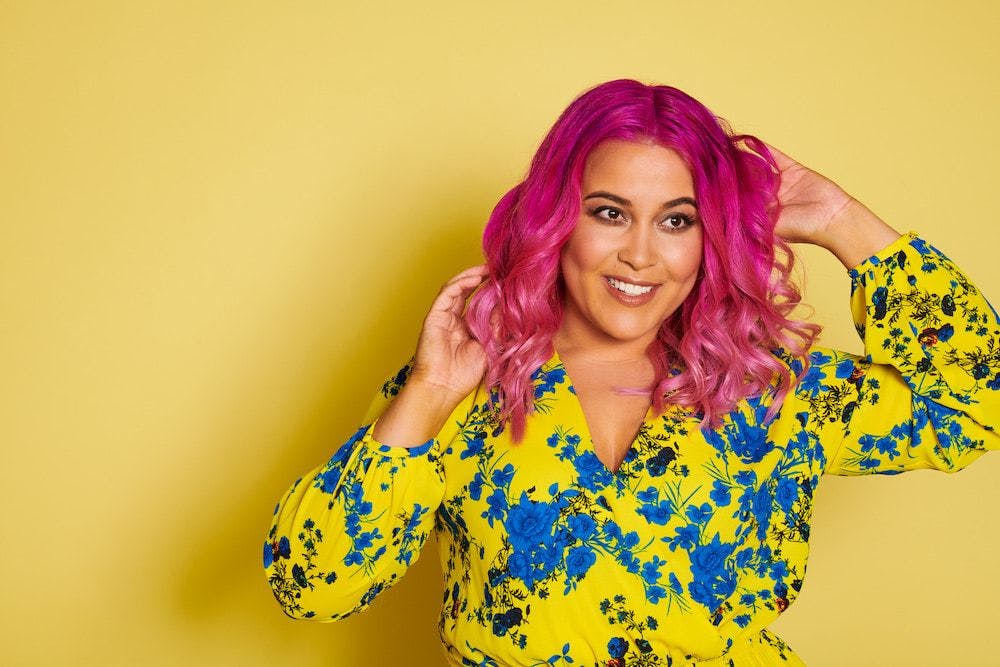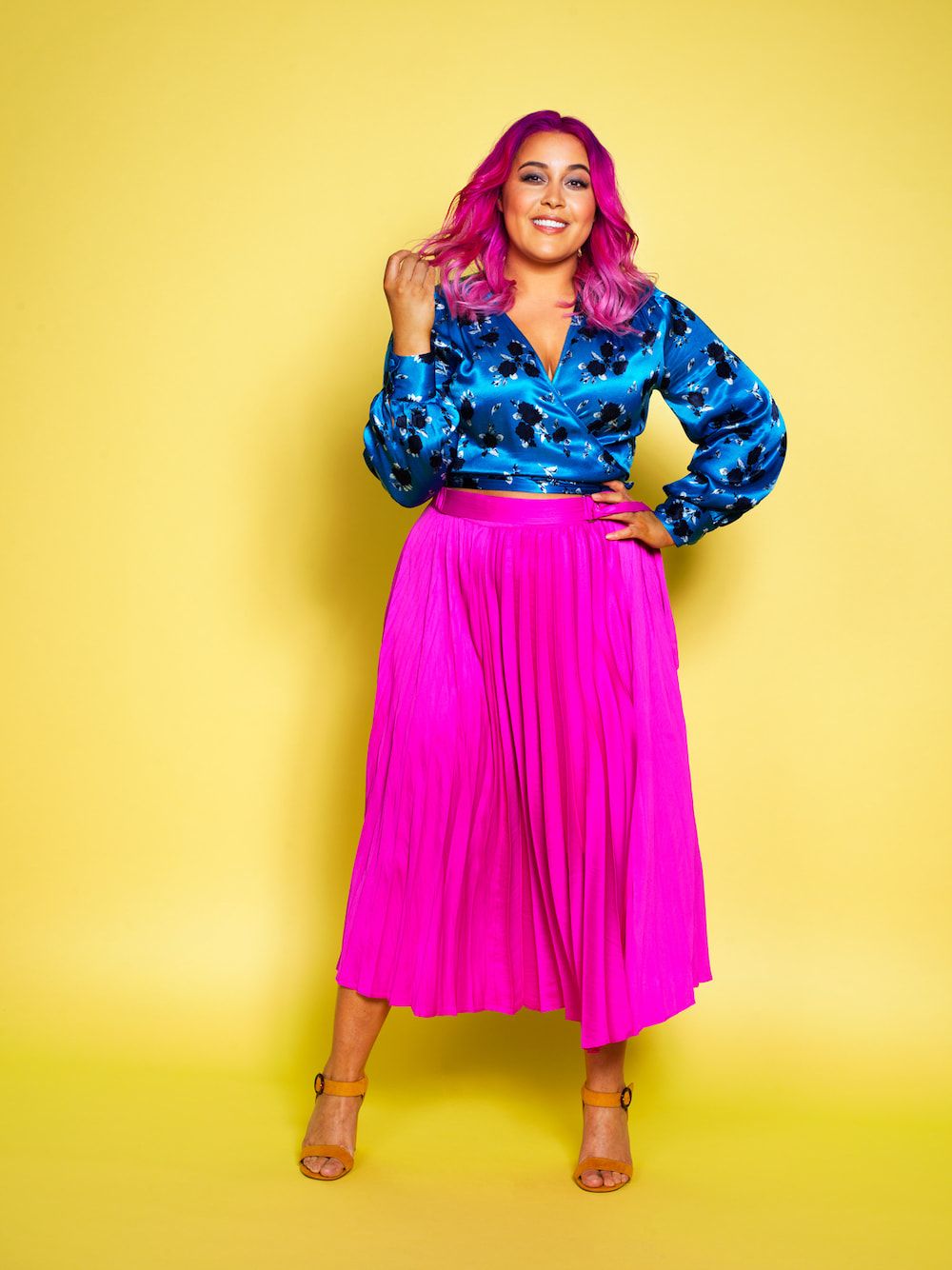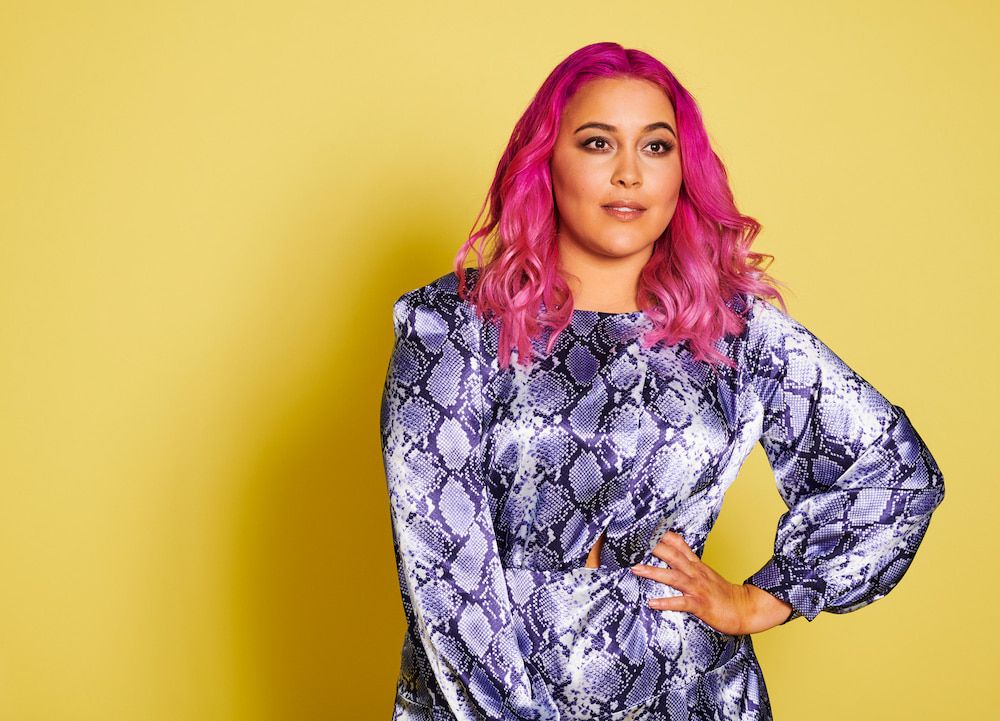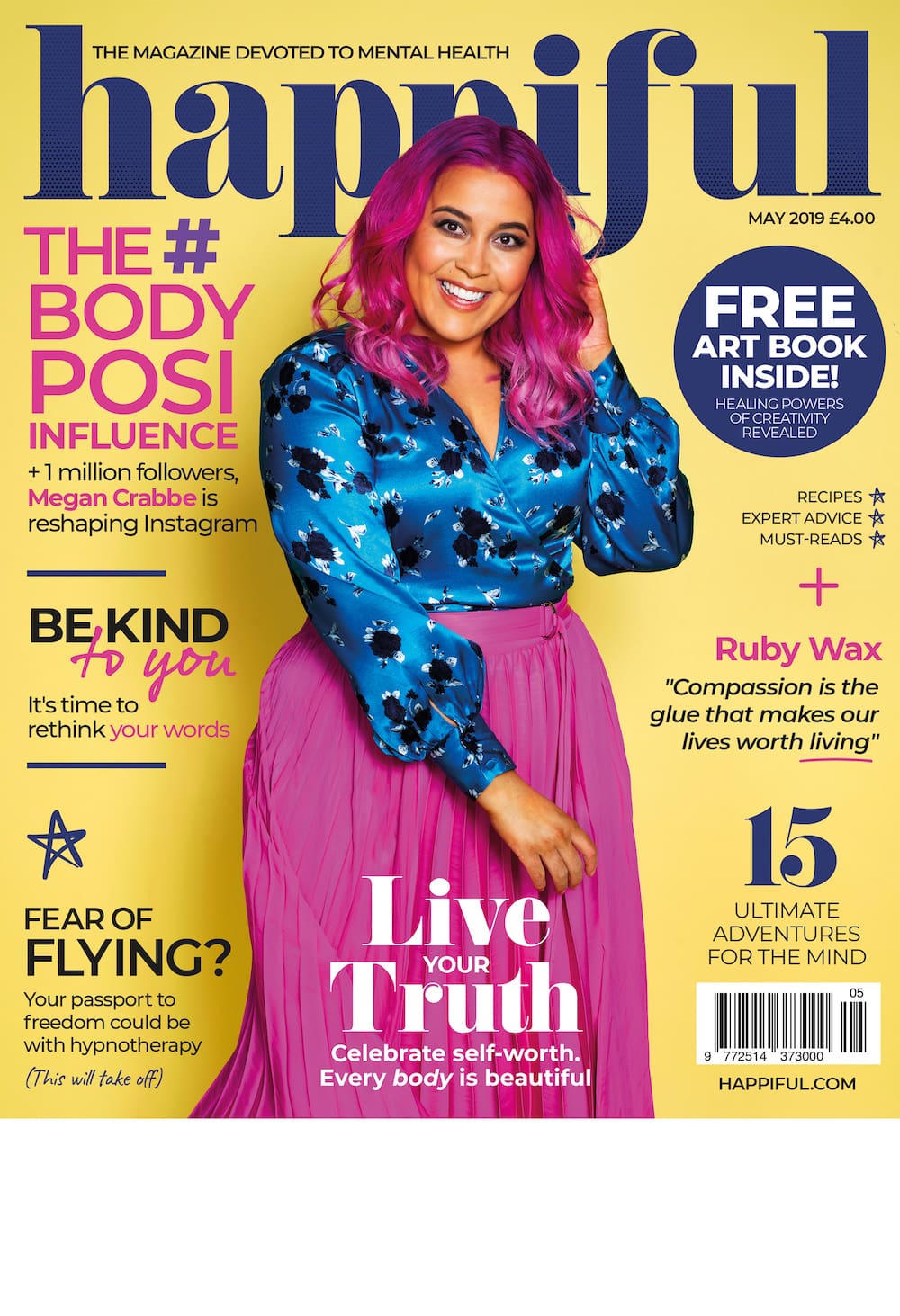Megan Crabbe on anxiety, anorexia and the power of self-love
updated on Jan 20, 2023

Megan Crabbe’s commitment to changing how we view our bodies has seen her amass more than one million followers on Instagram, and it’s the seriously supportive messaging behind those social squares that we really love her for.
But the path to where Megan is today hasn’t been an easy one. She has lived with anxiety, and was diagnosed with anorexia nervosa at 14. After a long period of being at war with herself, Megan found body positivity. She began to study the cultural messages that can cause harm, and started to tell others about the alternatives to self-loathing and punishment.
Now, on her mission to spread self-love far and wide, we have an intimate chat with Megan on her inspiration behind body positivity, putting on the ‘panda face’, and the irreplaceable relationship she has with her sister, Gemma
If you’ve not seen Megan Crabbe’s Instagram feed, I recommend you head over to @bodyposipanda to take a look. With her mission to spread the word about body positivity and acceptance, the plethora of pink and rainbow colours is instantly cheering.
There’s also authenticity, deep thought, research, and empathy at the heart of everything Megan posts and presents.
When we meet, Megan introduces herself as “an advocate for body positivity, eating disorder recovery, and a writer”, noting that she also does ‘influencer’ things. I’m struck by how modest she is.

Photography | Joseph Sinclair
As well as having more than one million followers, Megan has written a truly brilliant book on improving your relationship with your body, writes a regular column for The Unedit, appears on panels, has just announced a live tour, and has been in a Little Mix video… This woman is fierce.
Speaking out about how we can view our bodies with more kindness and compassion started just over four years ago for Megan. “I was on Instagram, looking for ‘fitspo’ – beautiful pictures of women that I wanted to look like, and then I would use those pictures to punish myself. That was my thing,” Megan explains.
At this point in her life, Megan had experienced extreme anxiety, years of yo-yo dieting and anorexia nervosa as a teenager, receiving a diagnosis at 14 after “years of falling down the rabbit hole of disordered eating”. Body dissatisfaction was something she had felt for as long as she could remember. However, this one search for ‘fitspo’ changed everything.
“I stumbled across someone who was wearing a bikini; she was maybe a size 20 to 22 and calling herself fat, but saying that wasn’t a bad thing,” Megan recalls. “She was talking about being fine with being fat, and that she was fabulous, beautiful, and she was not dieting anymore. She was living life. It opened up this whole world that I didn’t realise existed.”
Megan began poring through books about women’s bodies, how we’re taught to hate ourselves, why that is, and – as Megan puts it – “how that is bullshit”.
“As soon as I found it, everything clicked into place. It made me realise that there is a bigger issue, that the problem is bigger than me and my body. Everything changed after that.
“That realisation allowed me to start healing,” she continues. “At that point I was still carrying around the pain from my eating disorder that I’d never really healed, because I still hated my body and I was still completely disordered in my relationship with food.”
Megan says that books played a huge role in her self-discovery, crediting them as game changers on her path to a better relationship with her body. “The first book I found was The Beauty Myth by Naomi Wolf, which is this manifesto about beauty ideals and women, written in the 90s. It was so powerful for me, so fiercely feminist, and it changed how I thought.”
After this, Megan started to collect other brilliant books, but realised that the majority of them had been written in the 90s or before (with the exception of contemporary writer Jes Baker, who she describes as “fantastic”). While her library taught her more about body positivity and rejecting diet culture, many of the books didn’t reflect the challenges around self-image now – in the age of social media.

Photography | Joseph Sinclair
It was through her social platforms that Megan shared her new-found knowledge of body positivity, and her messages resonated with a lot of people who had not considered that there could be an alternative to self-hatred. As a consequence, Megan was approached to write a book on the subject, and Body Positive Power: How to Stop Dieting, Make Peace With Your Body and Live emerged in 2017.
Megan’s book shows her great talent for breaking down and exploring wider issues with the diet industry; global companies profiting from an individual’s poor self-image, cultural conditioning, and how widespread these problems are.
“When it comes to body image, absolutely everyone has some kind of issue that they’re dealing with,” she explains. “To actually zoom out and look at all of the forces that are teaching us to hate our bodies, and really recognise that you’ve been consuming messages since you were around four years old – whether it’s adverts, magazines, television, Barbie dolls, whatever the beauty ideal is at the time – that moulds how we think. We are not insular, our beliefs are impacted by what we are taking in every single day.”
Megan recognises that starting to unlearn the ideas we hold about body image can be difficult, but suggests that each of us need to take the beliefs we have about bodies, beauty, and worth and look at them under a microscope, questioning where they came from, and whether they are serving us.
That process, even for her, is never ending. “I still find myself having that same conditioned response to certain things that I’ve had all my life, and all I can do is take a step back and think: ‘I don’t want to believe this anymore, I didn’t want to believe it in the first place, and I want to let it go.’”
On social media it’s so easy to reduce people to one-dimensional beings. All you have are these squares, and it’s very simple to put people in boxes.
Megan is very open about the fact that her professional success doesn’t mean that the struggles, which were a catalyst for her subsequent work, have completely disappeared.
“The underlying issues I had all those years ago, the anxiety, perfectionism, not feeling good enough – they are still there.
“Looking back, I’ve realised that my eating disorder was a manifestation of those issues. It was a way to put those feelings into something I felt that I could take hold of.
“I no longer have that destructive outlet of disordered eating, but that doesn’t mean all the other parts have disappeared. They are still in me and I am still finding ways to manage them that aren’t self-destructive.”
For the past year and a half, Megan has been going to therapy weekly. As well as dealing with past and ongoing issues, she says: “There are also the very new, sometimes overwhelming, parts of being on the internet, which comes with a lot of challenges for the most anxious people.”
The aspect of being a public figure Megan finds the most difficult is when others try to tell her who she is as a person – something she finds disorientating, and harder than any judgement on how she looks. Her response to this is to mentally reclaim herself – she knows who she is.
“On social media it’s so easy to reduce people to one-dimensional beings. All you have are these squares, and it’s very simple to put people in boxes. Then, when they step out of the boxes, people get mad – ‘How dare you be a full human?’”
To read more of Megan's exclusive chat with us, pick up the May issue of Happiful in supermarkets from Thursday 18 April.
Body Positive Power: How to stop dieting, make peace with your body and live’ is available now (Vermilion, £12.99).
Follow Megan on Instagram @bodyposipanda, and listen to Megan chat on our podcast ‘I am. I have’, out now.

3 Ways to Get Happiful Magazine
Happiful shop: Can't see your copy of Happiful in a store near you? Head to our online shop.
In-store: Pick up your copy in Waitrose, Tesco, Morrisons, WH Smiths Travel, Asda or selected newsagents. Find a store near you.
Online: Happiful is completely free to read digitally. To get our May issue in your inbox this Thursday, subscribe now.
Photography | Joseph Sinclair
Make-up and Hair | Alice Theobald at Joy Goodman using Nature's Wish, Cosmetics à la Carte, Barry M and Colour Wow
Styling | Krishan Parmar
To discover more about anxiey, anorexia and body positivity, visit Counselling Directory or use the search box below to find a counsellor near you.

